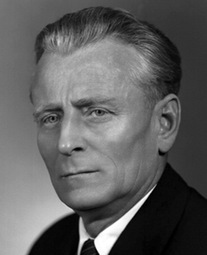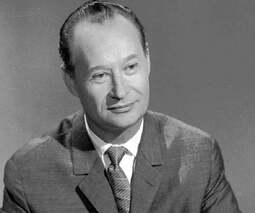Bernd
 10/23/2024 (Wed) 19:00
[Preview]
No.52517
del
10/23/2024 (Wed) 19:00
[Preview]
No.52517
del


One could think the Hungarian Revolution of '56 had great impact to the other Eastern Block countries. It is hard to measure but it seems the opposite is the truth. Officialy it was labelled as a counter-revolution and the rest of the opinions were suppressed. There were little to no samizdat activity that could give a voice, censorship ruled.
We already had some understanding with Poland, but Romania was openly hostile, Czechosolovakia ditto (with serious anti-Hungarian chauvinist overtones in both countries). Officially in the latter country as a direct reaction there was a "secret" memorandum that declared support for the leadership of Antonin Novotny, securing his position of First Secretary of the Communist Party of Czechoslovakia which he held since 1953, then he became president in 1957, held both offices till the Prage Spring removed him.
As our Revolution gained some of the ideas from the de-Stalinization and some wind too, Novotny's reign started with that - but as a counterweight. He seems he was more of a hardliner, who put effort into halting any thawing processes, and his "socialist" constitution of 1960 was even more formally communist than the previous one they accepted in 1948. So this "destalinization" went slow with occasional pushes from more reformist elements (such as writers, or the next First Secretary, Alexander Dubcek), eroding Novotny's popularity.
I can't say how wide was the popular support, but judging by the events that followed the later Soviet/Warsaw Pact invasion it seems that sympathizers were from all over the country from all level of the society - but not in any impactful numbers. People wanted changes but did not want to risk a more serious push for them. What we should see, that the changes were the product of the rise of an internal political opposition, and were introduced upside down, no armed uprising against the communist leadership happened unlike at Hungary.
In 1968 January Dubcek and a pal cornered Novotny, and Brezhnev (probably already probing the opinions of the leaders of the satellite states) decided to green light Novotny's retirement. The issue seemed to be decided but then Dubcek and many reformists started to talk nonsense about living standards, multi-party systems, democracies, building relations with the West and such. This compelled Brezhnev to engage them and tell 'em they should slow down a bit. They agreed, but The Head and Brow of the Soviet Union was not convinced, he saw that the process will lead to losing Czechoslovakia, and ordered the tanks of the SU and allied Warsaw Pact (Bulgaria, Poland, Hungary) countries' tanks rolling. No clash happened between the two sides, almost only civilians resisted, mostly with non-violent methods.
Dubcek had to go, he was replaced by Gustav Husak. All enacted laws and reforms were reverted, except the one that made Czechoslovakia a federation of two countries. Later some of the reforms were activated again as amendments if I understood correctly.